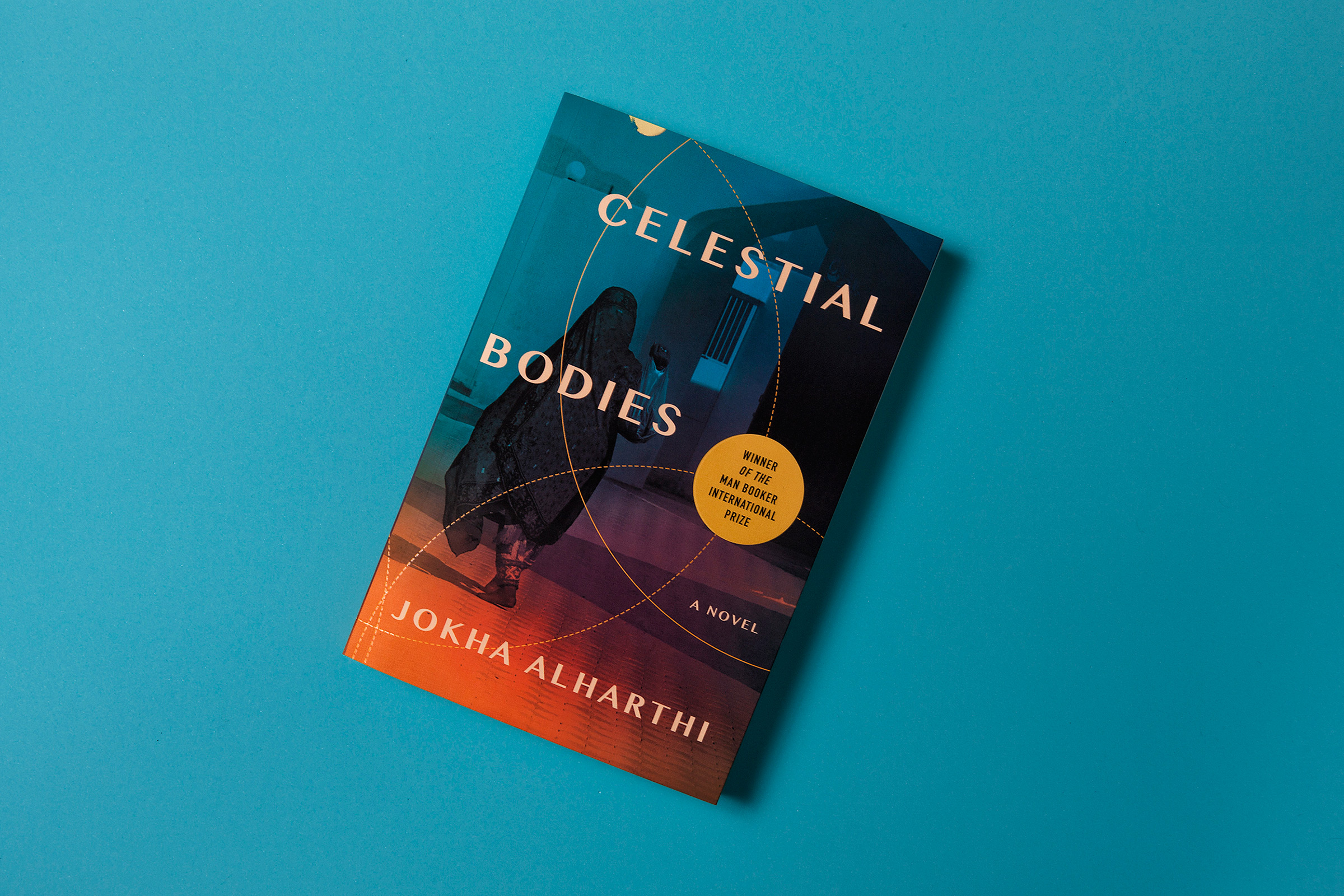
“When we are away from home, in new and strange places, we get to know ourselves better,” Abdallah, the son of a rich merchant, thinks as he gazes out an airplane window. It’s a sentiment that will resonate with many readers who immerse themselves in the rich, dense landscape of Jokha Alharthi’s Celestial Bodies, newly translated into English.
The novel has already made history–as the first by an Omani woman to be translated into English, and the first originally written in Arabic to win the Man Booker International Prize. (Marilyn Booth shares the award for her translation.) Through the lives of three sisters and their families, Alharthi charts the dizzying transformation of Oman in the decades after it achieved independence from Britain in 1951. During that time, the Gulf state redefined itself and opened up to Western commerce.
Originally published in 2010 as Sayyidat al-Qamar (Ladies of the Moon), the novel is written in short, experimental chapters that shift between streams of consciousness and memories and across multiple timelines. Alharthi alternates the first-person voice of Abdallah, the son of a slave trader (Oman only abolished slavery in 1970), with a third-person viewpoint following the sisters and multiple other characters. The results are mixed–the cast is so broad that it’s impossible to follow the story without regular glances at the family tree provided. But the variety of perspectives is effective in offering a window into a country that few Western readers will know intimately.
Celestial Bodies is strongest in its exploration of how the changes in Oman affect women: within one generation, they are exposed to ideas from abroad and start moving away from cloistered, rural life. But Alharthi, who began writing the novel while homesick in Edinburgh as she completed her Ph.D. in classical Arabic literature, pushes past stereotypical narratives of Muslim women defying patriarchy, instead illustrating the difficulties of balancing tradition and newfound freedoms. It’s a tale that perhaps could have been written only in a strange new place itself.
More Must-Reads from TIME
- Donald Trump Is TIME's 2024 Person of the Year
- Why We Chose Trump as Person of the Year
- Is Intermittent Fasting Good or Bad for You?
- The 100 Must-Read Books of 2024
- The 20 Best Christmas TV Episodes
- Column: If Optimism Feels Ridiculous Now, Try Hope
- The Future of Climate Action Is Trade Policy
- Merle Bombardieri Is Helping People Make the Baby Decision
Write to Naina Bajekal at naina.bajekal@time.com